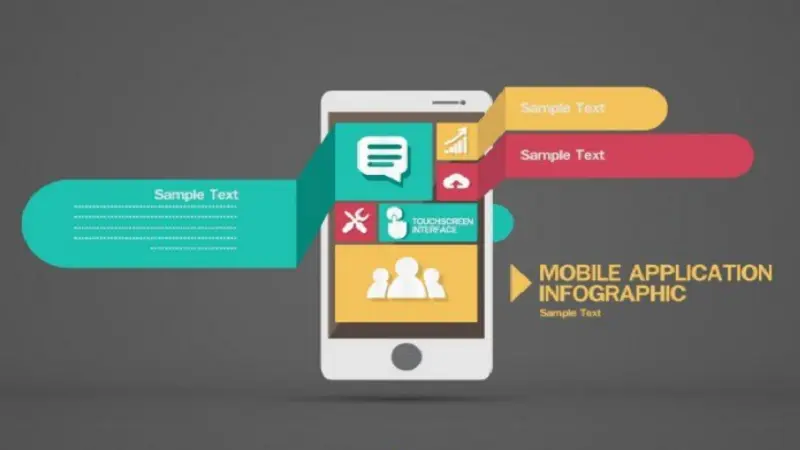In this changing landscape of political campaigns, the role of data has become much more crucial. While campaigns want to engage with people in an even better and stronger way, data enrichment services for politics have emerged as a major boon.
Such services allow several changes in campaign strategies as they offer deeper insights into voters’ behavior, preferences, and demographics.
This blog post outlines how data enrichment services are revolutionizing political campaigns and eventually shaping the future of electoral strategies.
Understanding Data Enrichment in Politics
Data enrichment in politics is developing, refining, and expounding the existing voter data with further information from various sources. This may include demographic data, behavioral insights, and social media activity.
The idea is to create a more holistic and accurate record of each one of your voters to enable the campaigns to craft their messages and outreach strategies effectively.
Some key components of data enrichment services:
- Data cleaning and validation,
- Appending additional demographic information,
- Integrating behavioral and psychographic data,
- Integrating social media insights,
- Analyzing voting history and political engagement.
Let’s dive into how these services can reshape campaign strategies:
-
Hyper-targeted messaging.
The most valuable benefit to any data enrichment services regarding politics is ultra-targeted messaging. Having a much better sense of the voters on a very granular level, a campaign can craft messages that resonate with segments of the electorate.
Benefits include:
- Increased message relevance.
- Higher levels of engagement.
- Far better efficiency in the utilization of campaign resources.
Example: A campaign could utilize enriched data to outline the environmentally conscious voters in swing districts and target them with tailored messages on the candidate’s policies related to green energy.
Implementation:
- Segment voters based on enriched data points
- Create targeted messaging for each segment
- Engage on preferred platforms-digital ads, direct mail, etc.
-
Improved Voter Outreach and Engagement
Data enrichment services can help campaigns find the most impactful way to reach and captivate different voter groups. This can lead to better ways to encourage and interact with those individuals and higher voter turnout.
Advantages:
- Personalized outreach strategies
- Higher response rates
- More efficient allocation of campaign resources
Example: Enriched data could show that young voters in one area interact most via texting, while older voters would most likely respond to a phone call or visit.
Strategies: Create multi-channel outreach plans informed by voter preferences. For instance, the method of communication should be personalized based on demographic groups and time outreach efforts to align with patterns in voter behavior.
-
Improved Fundraising Efforts
Data enrichment services for politics can greatly enhance fundraising efforts by supporting the campaigns in locating donors and personalizing their fundraising solicitations.
Key benefits include:
- More accurate identification of potential donors
- Personalized messages related to fundraising
- Higher conversion rates for donation requests
For instance, enriched data may show that a given voter has previously donated funds to environmental causes, and the campaign can highlight the candidate’s environmental agenda in a solicitation request.
Implementation:
- Score prospective donors with enriched insights
- Build targeted fundraising programs for different types of donors
- Personalize donation solicitations to individual interests and donation history
-
Better Voter Turnout Forecasts
By incorporating more varied data points, campaigns can forecast voter turnout more accurately. In turn, this enables the better distribution of limited resources and more effective efforts to get out the vote.
Advantages:
- Better planning and resource allocation
- More targeted GOTV efforts
- Better overall campaign strategy
Example: More detailed data may uncover patterns of low turnout within specific demographic groups in certain precincts; it would thereby enable the campaign to devote more resources to improving participation in those areas.
Strategies: Build predictive models using enriched data to identify geographies or segments of the electorate that could yield better turnout. Apply appropriate resources against turnout predictions and presumed impact.
-
Identification of Persuadable Voters
Data enrichment services can enable campaigns to identify those voters most likely to be persuaded to support their candidate. This helps campaigns utilize resources more efficiently and target those most likely to yield additional support.
Benefits:
- Better utilization of campaign resources
- Higher conversion rates
- Better holistic results of the entire campaign performance
Example: Richer data might reveal a niche constituency of independent voters interested in healthcare concerns, to which the campaign could address this constituency on the candidate’s healthcare endeavors.
How it’s done:
- Construct data models for detecting persuadable voters
- Construct messages for persuading those detected segments
- Analyze the effectiveness of persuasion efforts
-
Real-Time Campaign Optimization
Political data enrichment services also provide updates in real-time analytics. This helps the campaign change strategies faster based on the latest trends and information that come across their desk.
Benefits accruing:
- Agile management of a campaign
- Ability to respond rather fast to events of change
- Constant improvement of campaign strategies
Example: Real-time data might show that a particular message resonates strongly with suburban women, allowing the campaign to quickly scale up that messaging across channels.
Strategies:
- Track data in real-time and analyze
- Develop rules of engagement to quickly modify strategy
- Constantly update campaign tactics with fresh data
-
Better Volunteer Management
This newfound data will allow campaigns to manage and leverage their volunteer base more efficiently by better aligning volunteers with the activities and tasks that best suit them.
Benefits:
- Increased Volunteer Engagement and Retention
- Increased Utilization of Volunteer Resources
- Smarter Campaign Operations
For example, data enrichment may reveal that a volunteer has experience in digital marketing. The campaign can then put him to work on social media outreach tasks.
Implementation
- Complemented volunteer profiles with enriched data
- Develop the system of volunteer task-matching
- Identification and recruiting new potential volunteers based on the data
Challenges and Considerations
Along with all the benefits of using data enrichment services in politics come a lot of challenges and ethical considerations:
Data Protection and Security
Campaigns should consider all the data protection laws and regulations. Proper consent for data collection shall be compiled, and tight security measures should be taken to protect information concerning voters.
Data Accuracy and Bias
It’s highly important to regularly validate and clean the data to ensure accuracy. Moreover, a campaign should be aware of potential biases in their data and work to mitigate them.
Ethical Use of Data
Campaigns must be clear as to guidelines on the ethical use of enriched data, letting voter privacy be respected, and avoiding manipulative or deceptive uses of the data.
Over-Reliance on Data
Data is incredibly powerful, but it shouldn’t replace human judgment and traditional campaign tactics. A balance between data-driven strategy and personal engagement on-the-ground strategies needs to be met.
Not every campaign enjoys the same level of access to enriched data analysis. This could even constitute an unfair advantage for the better-funded campaigns.
Key Takeaways
- Sterling’s data enrichment services in politics can potentially revolutionize campaign strategies, offering unprecedented insights into voter behavior and preferences.
- By capitalizing on data enrichment services, any campaign can develop increasingly targeted messaging, better outreach to voters, enhance fundraising capabilities, and optimize resource utilization.
- Campaigns must use these tools responsibly and within the bounds of ethics.
- With great power through enriched data comes great responsibility to protect voter privacy and use such information to enhance, not manipulate the democratic process.
Final Thoughts
As technology proceeds to advance, it’s without a doubt that data enrichment services will also be increasingly sophisticated and inherent in the context of political campaigns.
When best applied and combined with ethical standards and personal connections to the electorate, such tools will provide a leading edge to certain campaigns in future elections.
All told, when data enhancement services for politics give a few very cool capabilities, they are best thought of as one more tool to augment-replace is the wrong word-the basics: contacting voters to understand their concerns and building a vision of the future that resonates with them.



